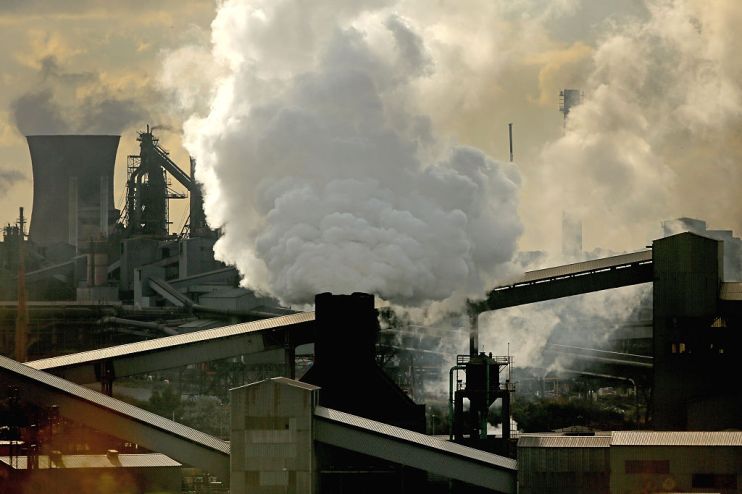British Steel to be saved in £70m Jingye Group rescue deal

British Steel is poised to announce a £70m rescue deal with Chinese giant Jingye Group today in a move that could save 4,000 UK jobs.
Jingye Group has agreed in principle to a £70m sum to buy British Steel, it is reported, which has been in liquidation since May.
Read more: Chinese steel maker Jingye in new bid for British Steel
The company contributes a third of UK steel production, and lobby group UK Steel’s director general, Gareth Stace, called the firm “a significant asset to our country”.
He told BBC Radio 4’s Today programme: “We know that a purchase by Jingye of British Steel would certainly complement what they do there in China.
“They both make wire rod, but actually British Steel makes rail, high-quality rail and heavy sections, ie girders which Jingye doesn’t make.
“[The acquisition] not only increases the amount of different products that Jingye could make but also, much more importantly, secures a foothold in the UK.”
Jingye reportedly plans to up production from 2.5m tonnes of steel a year to 3m at British Steel’s Scunthorpe factory. But it has warned it may need to cut costs, with the government running the firm at a loss since it collapsed in May.
British Steel looked to have a buyer secure in Turkey’s Ataer, which signed a preliminary agreement to buy the company back in August.
However, the parties failed to agree terms and the offer unravelled.
Stace said Jingye is prepared to invest heavily in British Steel’s Scunthorpe site.
“Jingye are looking to make significant investment, are in for the longer term and therefore it isn’t about keeping this site going for a year or two or a couple of years,” he said.
“To me, what I understand about the company, it’s about looking to the future, so we’re not going to be back in here in three years, five years, in 10 years’ time.”
The Chinese firm will be able to use a £30m taxpayer-funded support package if it buys the firm, according to the Sunday Telegraph.
But if an agreement is reached today, weeks of negotiations would continue, according to reports.
British Steel’s previous owner, Greybull Capital, abandoned it in May as it said fears around Brexit had killed demand.
The company contributes a third of UK steel production, and lobby group UK Steel’s director general, Gareth Stace, called the firm “a significant asset to our country”.
He told BBC Radio 4’s Today programme: “We know that a purchase by Jingye of British Steel would certainly complement what they do there in China.
“They both make wire rod, but actually British Steel makes rail, high-quality rail and heavy sections, ie girders which Jingye doesn’t make.
“[The acquisition] not only increases the amount of different products that Jingye could make but also, much more importantly, secures a foothold in the UK.”
Jingye reportedly plans to up production from 2.5m tonnes of steel a year to 3m at British Steel’s Scunthorpe factory. But it has warned it may need to cut costs, with the government running the firm at a loss since it collapsed in May.
British Steel looked to have a buyer secure in Turkey’s Ataer, which signed a preliminary agreement to buy the company back in August.
However, the parties failed to agree terms and the offer unravelled.
Stace said Jingye is prepared to invest heavily in British Steel’s Scunthorpe site.
“Jingye are looking to make significant investment, are in for the longer term and therefore it isn’t about keeping this site going for a year or two or a couple of years,” he said.
“To me, what I understand about the company, it’s about looking to the future, so we’re not going to be back in here in three years, five years, in 10 years’ time.”
The Chinese firm will be able to use a £300m taxpayer-funded support package if it buys the firm, according to the Sunday Telegraph.
Read more: China’s Jingye Group is poised for British Steel takeover deal
But if an agreement is reached today, weeks of negotiations would continue, according to reports.
British Steel’s previous owner, Greybull Capital, abandoned it in May as it said fears around Brexit had killed demand.